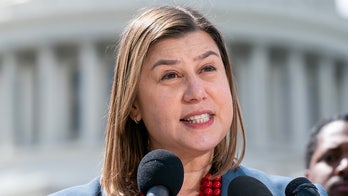WASHINGTON -- The Defense Department has raised the level of approval needed to discharge a service member under "Don't Ask Don't Tell," now that policy that bans homosexuals from serving openly is once again the law of the land.
A memo signed by Defense Secretary Robert Gates on October 21 informs the military service chiefs that they, along with the under secretary of defense for personnel and readiness and the Pentagon's general counsel, are the ultimate authority when it comes to deciding the fate of service members facing dismissal because of their sexuality.
In other words, any service member who is suspected to be gay can't be kicked until the case is heard by the head of his or her service (i.e. the Navy, Army, or Air Force Secretary) and two other top officials in the Pentagon -- all of whom are political appointees.
In the memo Secretary Gates sites "legal uncertainty that currently exists surrounding the Don't Ask Don't Tell policy" as the reason for making this change.
Last Tuesday a federal judge in California filed an injunction barring enforcement of the Don't Ask Don't Tell policy that was in effect until an appellate court placed an emergency stay on the ruling late Wednesday evening. However, the emergency stay will only last for a few days and it could be overturned.
On Thursday a senior lawyer for the department of defense said had no real idea how long the appeals process will ultimately take, saying only he expects it to wrap up sometime in 2011.
President Obama has committed to repealing the Don't Ask Don't Tell law and promised recently that it would happen under his watch. Yet the administration believes the repeal needs to come from Congress and that it shouldn't be done in the courts.
Defense Secretary Gates has argued a repeal should not be voted on until after Congress has had a chance to read the Pentagon's upcoming review of the gay policy. Scheduled to be delivered on December 1st, the review will offer views from the military about it might react to serving with open homosexuals, as well as strategies for best implementing a change in the law.




